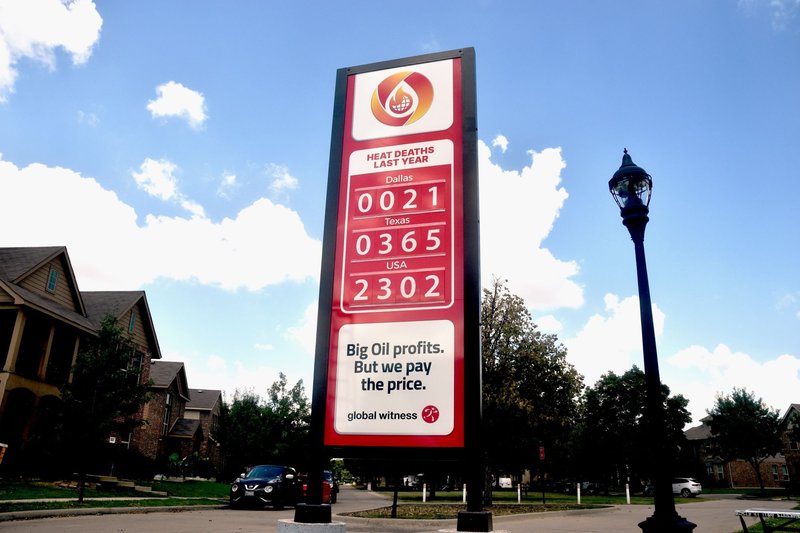Oil firms present at COP summits made $2.6 trillion profits since the Paris Agreement – enough to pay half the cost of climate damage in poor countries

Fossil fuel companies that have sent lobbyists to COP summits produced enough oil and gas since the 2015 Paris Agreement to cause 17 million heat deaths this century, new analysis by Global Witness shows.
A total of 104 oil and gas producing companies sent lobbyists to the three COP summits that preceded the current talks in Baku. Since the Paris Agreement was signed in December 2015, carbon emissions from these companies’ oil and gas production amount to 76 billion tonnes, according to Global Witness’s research.
The top five Western oil majors – Shell, BP, TotalEnergies, ExxonMobil and Chevron – have all sent lobbyists to COP talks. Between them these companies have produced enough oil and gas since the Paris Agreement to cause 3.7 million heat deaths, according to Global Witness’s findings.
Dominic Eagleton, Senior Fossil Fuels campaigner at Global Witness, said: “Including oil companies in talks that should aim to phase out their deadly products creates a life-threatening conflict of interest, which governments should end by shutting the industry out of climate policymaking.
“Fossil fuel companies are the root cause of climate breakdown, yet despite making billions in profits, they don’t pay a single penny for the damage they’re causing. We need to set a clear rule – if you pollute the climate, you pay to clear it up.”
Global Witness’s analysis is based on the mortality cost of carbon model devised by academics at Columbia University. This predicts there will be 226 excess heat deaths worldwide from 2020 to 2100 for every million tonnes of carbon emitted in the year 2020.
Fossil fuel emissions are by far the biggest contributor to the climate crisis, which is making heatwaves more frequent, more intense and longer lasting. Poorer countries, which are bearing the brunt of extreme weather, are forced to cover the costs of climate destruction even though they are least responsible and least able to pay.
Fossil fuel companies that attended the previous three COP summits, which currently have no obligation to pay for the climate damage they cause, made $2.6 trillion profits from oil and gas production since the Paris Agreement was signed, according to Global Witness’s research.
This would cover half of the climate damage costs in developing countries over this period, which are an estimated $400 billion per year.
At this year’s COP29 summit in Baku, fossil fuel lobbyists received more passes to the event than all the delegates from the 10 most climate vulnerable nations combined, giving the industry a stronger presence than countries on the frontline of climate breakdown.
Global Witness approached Shell, BP, TotalEnergies, ExxonMobil and Chevron for comment on these findings. Shell and TotalEnergies declined the opportunity, and the other companies did not respond.
Methodology
- Global Witness’s heat deaths analysis is based on the mortality cost of carbon model devised by academics at Columbia University. This predicts there will be 226 excess heat deaths worldwide from 2020 to 2100 for every million tonnes of carbon emitted in the year 2020. We use a wider range of emissions for the period 2016 to 2024. The model assumes a "business-as-usual" scenario, in which governments successfully implement the climate policies that are currently in place. The heat death figures do not include other causes of death attributable to human-induced temperature rises, such from infectious disease, conflict, flooding, and hunger.
- We used data from previous Global Witness investigations which show the number of fossil fuel lobbyists that attended the preceding three COP summits, and which companies they represented. We identified these companies’ oil and gas production volumes from 2016 to 2024 using Rystad’s Energy’s UCube database, and applied the Columbia University mortality cost of carbon methodology to the production volumes.
- We used Rystad Energy’s UCube database to identify the profits made by this cohort of companies since the Paris Agreement. The figure represents "free cash flow" from the companies’ oil and gas production, after production costs and taxes are accounted for.


